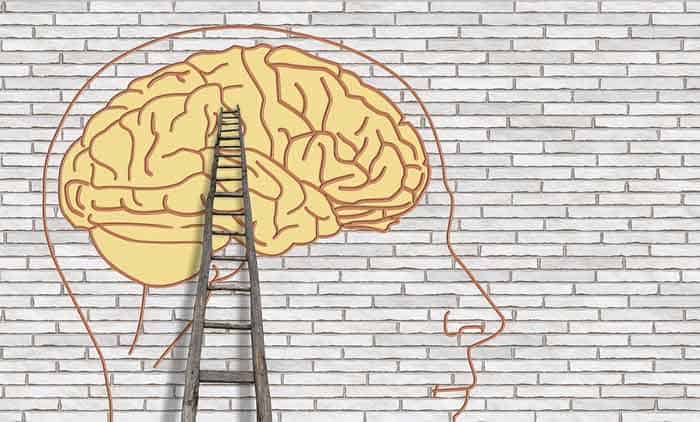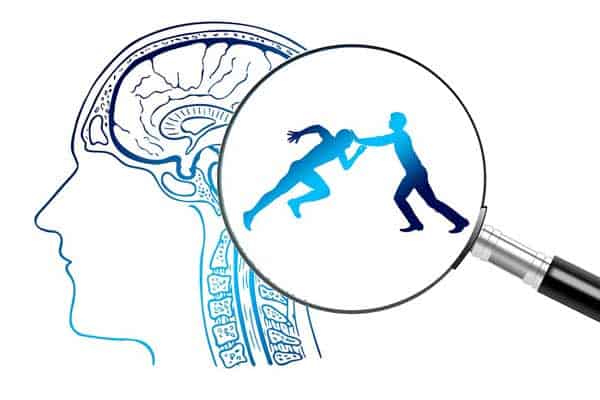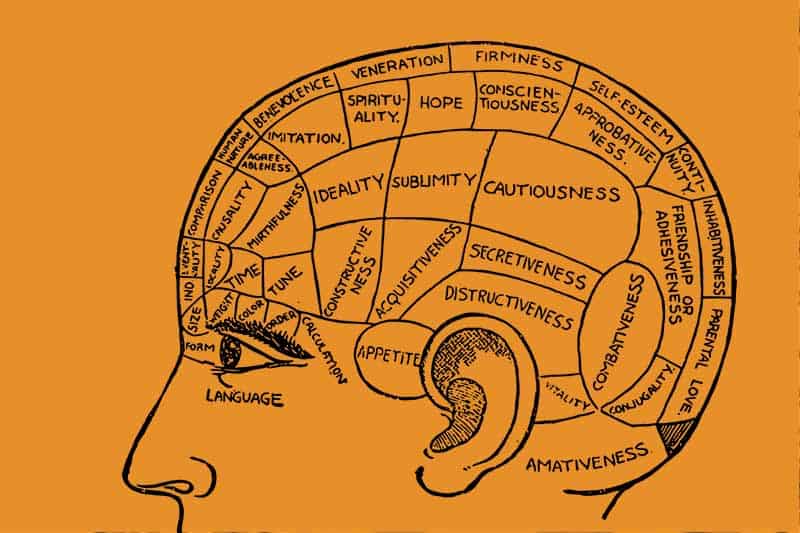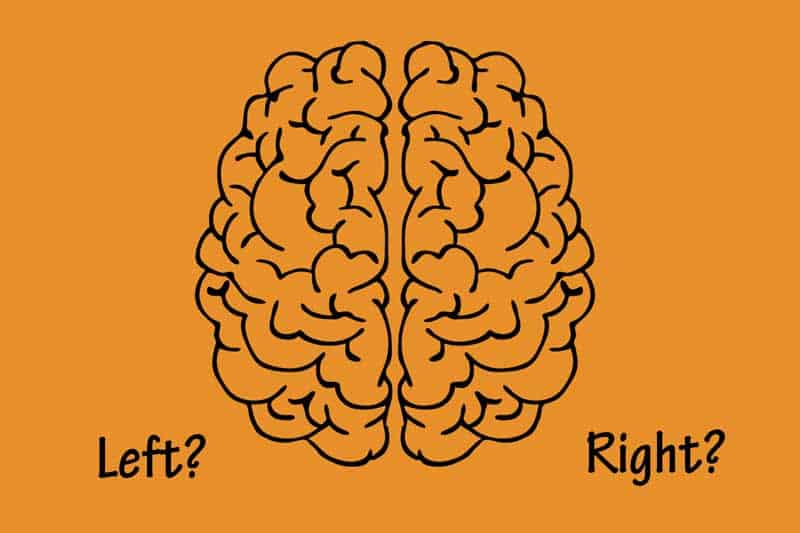What is self psychology and how does it work?: Self psychology is a psychoanalytical therapy and it was developed by Heinz Kohut in the United States at the Chicago Institute for Psychoanalysis. It is basically a tool used for treating people with personality disorders. It tells us what is our relationship with our “self”? Who we think we are.
In this type of psychology, the exertion is made to comprehend people from inside their abstract experience by means of vicarious reflection, putting together translations with respect to the comprehension of the self as the focal part of the human mind.

Inspiring your journey, one story at a time. #LifeFalcon.
It is a newer take on the traditional theory of psychoanalysis.
It is a rather relational type of psychoanalysis with several extra aspects and dynamics to it as compared to traditional psychoanalysis.
Concepts that are essential to understand self psychology include; empathy, mirroring, self-object, idealizing, tripolar self and alter ego.
These concepts are understood in order to comprehend self psychology as a therapy and theory of its own.
Kohut and his theory of self psychology claim that therapies are effective. However, it has more to do with the patient rather than psychoanalytic theories. Kohut believes that to heal through therapy, the therapist should be well connected with the patient’s inner self.
He also believes that narcissism isn’t all bad. Being a narcissist on some level can actually be good for an individual’s connection with other individuals.
Self psychology addresses “empathy” as a significant aspect in the process of therapy to heal and increase human growth intellectually.
It signifies that the therapist should be empathetic with the patient.
It can be used by therapists to create a sense of self in patients.
As a part of their therapy, they can gain a connection with their inner self and heal themselves with the help of self psychology.
Self psychology is actually interesting. Remember when someone said, only you can heal yourself? This is how it is justified. Even our therapists need us to have a connection with our inner souls in order to heal.
For self psychology, center of the universe is the concept of self.
If an individual has developed a positive and healthy idea of their self, they are likely to have a more stable mental health.
They will have stable self-esteem throughout their life.
They will have positive psychology.
Contradictory, if an individual fails to develop a healthy concept of their “self”, they will seek validation from other individuals and things throughout their life.
This will adversely affect their mental health as well.
The question remains, what is the “self”? It is the idea which we think and feel ourselves to be as quoted by James. The concept of “self” is relative and the idea will vary as per our interpretations.
Table of Content
How does self psychology work?

Below mentioned is the process of how self psychology works and the significant elements that play a part in the theory of self psychology:
6 major concepts of self psychology are: The Self, Empathy, Optimal frustration, Alter Ego, Idealizing, and The tripolar self.
These are the key terms to understand the entire process and concept of self-psychology.
The most significant element and tool in Self Psychology is empathy.
Self psychologists believe that empathy allows the therapist to experience life from the patient’s point of view and this makes the process of healing more effective.
Self psychologists understand patients through empathizing and get on their level to ensure that they are playing the right card.
Their goal is to tune with the patient so they can treat their mental health according to their inner self and feelings.
The main difference between self psychology and other dynamics of psychology is the fact that self psychology uses the client’s perspective and view point to carry on the process of therapy.
Self-Object:

This is a newer element to therapy and is done by self psychologists and self psychoanalysts. They believe that symptoms of mental health disorders such as personality disorders are a result of lifelong experiences and self-object.
The question is what is self-object?
Self-object is an individual’s experience of another thing or person [object] as a part of their own self.
The need for a self-object is also for an individual’s self-esteem and determination.
Self-object are people, things, and anything external that somehow forms a part of our “self”. Self-object are necessary and play an integral part in shaping us and our personality.
This is linked to self psychology because in order to understand the perspective of the patients, the therapist needs to correlate and understand their self-object.
Self-object is described as a dimension of an experience faced by the client.
The self-object can be archaic as well as it can be mature or appropriate. The self-object does not have to be a person in specific, it can be anything.
It can be a tune, music, culture, and the list goes on. It can be anything and everything that can somehow be associated with the “self” of an individual.
Self-object arises in an individual as a result of their desires and associations. A person cannot lose their association with their self-object yet their relationship with it changes and modifies from time to time.
Kohut believes that the idea of self-objects is taken for granted. The significance of this element in self psychology is only seen when the individual’s connection with the self-object is unavailable to them.
Empathy:

Kohut has repeatedly emphasized the importance of empathy in self psychology and its process of healing personality disorders through therapy.
For Kohut, empathy remains the most integral element in self psychology. He has claimed that a self psychologist needs to be empathetic in order to understand the client’s view-point.
To have effective therapy, the self psychology therapist needs to see the situation and world from the client’s perspective to be able to analyze the situation and disorder better ad effectively.
Kohut also believes that empathy plays a role in developing “the self” in a child. If parents fail to empathize with their children, it becomes a root cause for a number of other psychological factors that may arise later in the future.
The presence of empathy between a self psychologist and a patient strengthens their relationship and then therapists can deal with the client’s mental and personality disorders with a clearer understanding of it.
With the help of empathy, the therapist can reach to a conclusion of the client’s mental health sooner than usual. This also creates a bond between the therapist and client that aids the process of healing gradually.
Self psychology is also not limited to a single culture or race.
Another benefit of using the element of therapy in self psychology is the fact that the client will feel inclusive and comfortable all the time.
The bond and relationship between the therapist and individuals will make them feel safe, heard, inclusive, and comfortable throughout the process of self psychology.
This means that people of all races, gender, cultures, etc can take self psychology because of its element of empathy between the therapist and client.
When therapists develop an empathetic relationship with their clients, they can identify if the client had an empathetic or the opposite as a part of their past experiences in life.
The facial expressions and reactions of a client to an empathetic statement said by the therapist will make help them understand their perspective and past experiences regarding empathy.
Alter Ego:

Alter ego is a desire and need that individuals face in their early years of development, It is the desire to be similar to other individuals and find common factors to make individuals seem alike.
Everything in self psychology is related to the development of the self in individuals.
Similarly, the alter ego has to do with the self of an individual.
Kohut also believes that the existence of alter ego is often experienced in analyzing the personality of a narcissist individual.
Mirroring:
Mirroring is referred to the process of seeking external stimuli and responses for making decisions for you.
This can cause positive reinforcement as well as negative reinforcement.
If a friend encourages you for performing well, you tend to acknowledge the compliment and that boosts your sense of self and esteem.
Similarly if a person you know discourages you or criticizes you, this could shatter your inner pride, confidence and self-esteem.
Hence people will criticize as well as compliment. You should stay determined and not let external comments affect you or your sense of self-esteem and confidence.
These comments do not make you any less than others thus keep your chin high and continue doing what inspires you.
Idealizing:

According to Kohut, as a part of an individual’s needs and wants, they seek comfort in other people. This is a result of their idealization.
A child would run up to his mother when he cries, this is because he has idealized his mother as an external source of comfort and peace. Individuals idealize external stimuli for their inner wants and wishes.
This is also as a lack of self-esteem that individuals start relying on others for comfort and calmness. It can be lethal as reliance on other individuals for validation and comfort can compromise an individual’s self-confidence.
Narcissism and Self Psychology:

According to self psychology, narcissism is a significant and a normal part of children’s development of the self. Narcissism can be healthy as well as unhealthy and is directly related to it.
As mentioned above in the article, empathy also plays an important role in the development of a narcissistic personality.
If a child grew up in a healthy environment and had an empathetic relationship with his parents, he is likely to have a healthy narcissistic personality that leads to a resilient sense of the self in children.
Narcissistic Personality Disorder is the least diagnosed amongst all mental disorders.
Similarly, if a child grew up without having an empathetic relationship with his parents, he is likely to suffer and be a narcissistic later in life. This can directly affect the child’s understanding of the self and self-object.
According to Kohut, insufficient empathy in children, later on, decreases their sense of self-esteem.
They begin to rely on other things and factors to give them a sense of self-esteem and validation. This is where their mental health starts deteriorating. They lack self-trust and seek validation from others.
In self psychology, the therapist focuses on this aspect and helps the patient recognize their sense of self-esteem and develop these missing elements and functions. This is where empathy plays its role in healing.
Kohut believes that individuals regulate their sense of self and self-esteem sing self-objects. This determines normal narcissism and pathological narcissism in individuals who have been treated with and without empathy.
Individuals with NPD usually end up having a missing and incomplete connection with self-object hence they feel reflecting anxiety and a sense of superiority.
Self psychology and childhood impact:
Kohut believes that an empathetic relationship between parents and children ultimately decides their personality, sense of self, and connection with self-object.
Generally in psychology, the root of many disorders and mental illnesses is because of an inadequate childhood that lacks personality and a sense of inner self and determination in individuals.
Moreover, Kohut claims that since childhood is an early developmental phase, the sense of self can be developed in them easily through the processes of empathy and self-object.
Limitations of Self Psychology:

Critics claim that Kohut has overstated the role of parental influence and empathy when it comes to self psychology.
A similar critic was claimed for Freud as well since people believed that he overstates the role of sex.
It is criticized that self psychology and Kohut fail to emphasize on other psychological factors that can contribute to Narcissistic Personality Disorder or an unstable connection with the self.
It is not valid to entirely blame the sense of self and empathy in childhood for a personality disorder that can have numerous other reasons for its development hence the concept of self psychology somehow lacks generalisability and is reductionist.
Some critics also claim that this research of this psychology lacks explanations for other factors that can impact a person’s mental well-being and personality development.
Contributions of self psychology:
You just read the criticism for self psychology? Question yourself; is the significance of empathy really overstated in it?
I personally think it isn’t.
Empathy is extremely significant when it comes to personality development and plays an important role in our life throughout.
Moreover, it provided with a clearer concept of narcissism. It helped with the understanding of normal narcissism and pathological narcissism.
It also made it clear that narcissism is a normal and integral part of a person’s personality development.
This being said, Kohut also explained the role and importance of empathy in therapy and mental health development (as mentioned above). It has developed a sense of empathy in therapists which leads to an even more effective type of therapy.
Kohut’s idea of self psychology has also made a contribution to children’s treatment of psychotherapy and has provided with a better understanding on the personality development of children from an early age.
Furthermore, if we focus on different elements and branches of Psychology; it is clear that self psychology is a clearer and more relatable source of information and research regarding personality disorders.
Therefore the critics of self psychology might make sense, yet the importance of empathy and self cannot be overstated since it plays an integral and significant role in shaping our personalities as well as creating a sense of self and self-esteem in us.
It also emphasizes the significance of past traumas and the ways in which they can affect our emotional well-being and personality development. It asserts certain importance to the healthy development of “self” in individuals.
Kohut’s Self-psychology in Detail:

Heinz Kohut started as a follower of Freudian concepts which dealt with Freud’s theory of psychosexual development. The theory stated that the development of personality was identical with the development of desires—specifically sexual ones.
But when Kohut started progressing towards treatment in accordance with Freudian concepts he observed some limitations coming his way. One of the main limitations was he found that there is a lack of efficiency in assessing what was considered at the time to be a narcissistic personality.
This led Kohut to begin to explore the very notion of self-love, Kohut considered whether it was immature behavior and destructive to relationships, as postulated by Freud’s theory of psychosexual development.
This led to Kohut suggesting that some form or at least some degree of narcissism can be healthy and helpful to form relationships.
Advancement of Kohut’s Self-psychology theory
The main objective of Kohut’s theory of self-psychology that he opposed the Freudian theory about the source of narcissism.
According to Heinz Kohut’s self-psychology model, narcissism results from a lack of parental empathy, rather than contradictory drives, as suggested by Sigmund Freud.
Kohut idea of narcissism was based upon the belief that “a child does not develop a sound sense of self-esteem and good judgment about himself and looks to other sources to gain a sense of value and appreciation when parents are unsuccessful in providing empathic responses”
Empathy was an important fragment of Kohut’s work, as he realized that extreme devotion to Freudian ideas and principles in treating patients often led psychoanalysts to confide in their own beliefs and ideas extremely rather than empathizing with those in treatment and understanding their perspective of life and their problem which yield better results.
Self-psychology values empathy at an advanced level, it deals with the capability of the psychoanalyst or the therapist to better understand the feelings and experiences from the patient’s point of view.
Main Components of Kohut’s Self-psychology:
The main components of Self-psychology are
- Self
According to Kohut, the self is the center of an individual’s psychology. a child forms a sound perception of self typically within a suitable developmental environment.
Usually, a child maintains continuous patterns and experiences, he controls, regulates, and self-soothe throughout life with a better sense of Self.
- Self-object
Self-object comes into the picture when individuals fail to acquire a sound knowledge of self, they may incline to depend on foreign sources to fulfill their needs.
These foreign objects are called self-objects. Self-objects are a habitual part of the child-developmental process, according to Kohut.
Children require self-objects when they become unable to meet all of their own needs, but during the time of a healthy child-development, as individuals develop the ability to meet their own needs without depending on external other they adopt self-objects as an integral part of themselves.
Main Concepts of self-psychology:
The idea of self-psychology revolves around the concept of transference. In psychoanalysis, transference is defined as the process in which a person’s childhood feelings and longings are transmitted to a new object which is present outside of a person’s mind. Kohut defined three types of transferences that reflect self-object desires:
- Mirroring Transference: This type of transference deals with others serving as a mirror that redirects a perception of value and gives a person a sense of importance. Mirroring transference involves the use of verifying and affirming reactions from outside which convinces a person to observe positive traits within the self.
- Idealizing Transference: Idealizing transference involves individuals looking for those people in their life who can comfort them and calm them. This can be seen during childhood when children refer to their parents to seek comfort after facing an injury. Children often idealize external others whether it is a parent or a teacher as somebody calm and relieving when they are unable to achieve it on their own.
- Twinship Transference: Kohut believed that people need a perception of resemblance with others in their life. This behavior can be seen in children who want to be parallel to their parents in terms of traits, speaking, clothing, and imitate the actions of their parents. But Over the life span of a child, he becomes more capable to stand transformations in their life.
Self-psychology in accordance with psychopathologies and psychoanalysis:

Kohut vehemently dissociated from Freudian concepts and other succeeding psychologists who believed that psychopathology results from shortfalls in the self rather than from personal conflicts.
Kohut’s self-psychology leads us to believe that borderline personality disorder may arise from the incapability to be considerate keep hold of others as internal structures or self-objects who are capable of capable and calming the self.
Hence Drug addiction may also result from a need to fill those parts of the self which has gone astray
Therefore, a narcissistic personality disorder can arise from being handicapped at the early developmental stages of life which distorts the structure of the self.
Kohut’s self-psychology also gives a new meaning to psychoanalysis by considering empathy and introspection more influential in treatment than a person’s internal conflicts,
Kohut considered that psychoanalysis has nothing to do with an obsession with forces, vectors, and structures, and thought that subjective states should be considered as an advent phenomenon during therapy.
Self-psychology and classical analysis fit together fascinatingly which is the study of politics in psychoanalysis. Though, over the years, self-psychology has left the typical approach of classical analysis in the United States.
However, certain important features of self-psychology have more recently been incorporated into the typical approach of classical analysis.
So, what amount of narcissism is acceptable according to Kohut’s self-psychology?
Self-psychology provided a certain, comprehensive, and more clear knowledge about narcissism, Kohut saw it as a natural part of child-development.
Kohut’s self-psychology theory suggests that narcissism is a usual aspect of a child’s development. Children are often seen fantasizing about having superpowers or see their parents as flawless personalities.
Kohut suggested such childhood experiences should be fortified as, over time, children eventually begin to recognize that their exaggerated perceptions of the self and their parents are quite unrealistic.
Children who grow up in a supportive and compassionate environment are typically able to endure the resulting irritation, frustration, and dissatisfaction and develop a healthy degree of narcissism, leading to a safe and durable sense of self.
While a narcissistic personality disorder may be a serious problem, narcissistic personality traits themselves are not necessarily harmful and can be dealt with over time.
Changes in psychotherapy brought by Kohut’s self-psychology:

Kohut’s self-psychology redefined the observational position of the analyst.
Kohut reasoned that Exploration of the external world requires an externally directed observational standpoint while the Exploration of the internal world i.e. the domain of psychotherapy, requires an empathic, pensive stance.
He rejected the objective systematic formulations of the ego and object relations psychologies, instead, he promoted a subjective point from within the patient’s experience.
Kohut suggested that Psychopathologies, from the self-psychology perspective as well as from most object relations perspectives, were not seen not as the emergence of oedipal wishes as stated by Freudian theories, rather as the reemergence of earlier requirements the satisfaction of which during childhood should have served as the basis for healthy development.
Self-psychology went further to assert those unempathic interventions in psychoanalysis repeat early traumas from one’s life. Symptoms and unpleasant effects represent destructive parts of a fractured self.
Kohut suggested that Psychoanalysis, then, should be focused not on the reconstruction of what precipitated the emergence of narcissism and transference rather than the meaning of the products, and on the genetic precursors of this pattern of behaviors.
Drawbacks of Kohut’s self-psychology:
Many Critics of self-psychology have suggested that the theory is merely a supportive therapy and say it is doubtful to create lasting change for people going through treatment.
Self-psychology has also been criticized suggesting that though self-psychology tries to better explain narcissism, it cannot be applied to every person who suffers from a narcissistic personality disorder.
Many other critics have stated that the theory is unfinished and does not appropriately report all the components of the psyche, such as determinations, ambitions, and the unconscious drives, that may have an impact on a person’s growth and welfare.
Kohut’s Self-psychology Summary
Heinz Kohut as a psychoanalytic thinker offered a new paradigm of psychological development and functioning which he called “self-psychology”. He suggested a new way of treatment for a disease like narcissistic personality disorder and many more. Through his studies and theories has faced some major drawbacks but still, his concept of self-psychology imposes a deliberate quest on Freudian concepts and theories.
With his approach, Kohut also elaborated understanding of empathy, as it correlates it with mental health care.
Self-psychology focuses on the importance of empathy in accordance with the therapeutic relationships as a format to better understand and explain what has been perceived, rather than a specific product, action, or deed.
Kohut considered empathy to be an essential component of the treatment and healing process. When a therapist becomes able to use this ability and empathize with the person to see and understand their concerns and problems through their point of view—what Kohut called experience-near observation—treatment proves more beneficial and may move forward more efficiently.
Conclusion:
“If there is one lesson that I have learned during my life as an analyst, it is the lesson that what my patients tell me is likely to be true — that many times when I believed that I was right and my patients were wrong, it turned out, though often only after a prolonged search, that my rightness was superficial and their rightness was profound.”
These words were written by Kohut back in 1984. This is a great example of modernizing self psychology that is more relatable and holistic.
Your inner sense of self is necessary since it determines our lifestyle and the everyday choices we make in life. To have a sense of self and connection with it can make your well-being better and healthier.
This is the reason that self psychology revolves around the feeling and development of self in an individual.
Self psychologists have a way better tactic of healing since the patient will be able to relate because of the factor of empathy. This can cause long-term healing of anxiety, depression, or any other personality disorder.
Self psychology has also clearly distinguished the differences between healthy narcissism and NPD.
It has also normalized healthy narcissism since it can be a regular part of our personality development.
Another major role that self psychology plays in the mental health sector is that it prevents individuals from relying on external stimuli and self-objects for validation.
This can contribute towards a healthier mindset.
Self psychology on the whole has made it easier for therapists to treat patients with personality disorders.
The usage of empathy in the process of self psychology creates a healthy bond between the therapist and patient.



















